Today we will cover the causes, treatments, and prevention of hair fall out in both men and women with 23 proven ways that have 100% satisfactory results.
Hair strands have a lifespan between two to five years. A gradual shedding of 50 to 100 hairs per day is normal. Hair shedding is a natural process. But, if hair sheds more than 100 to 125 in a day are addressed as hair loss. If a part of the scalp is seen widening, patching, and bald spots, that means one seriously has hair loss.
Lifestyle, health conditions, circumstances, and surroundings have effects on the cycle of active growth, hair transition, and rest cycle. One needs to follow some hygiene hair tips, diets, and remedies to prevent hair fall out. You may like our recent publication on how coconut oil helps your hair growth.
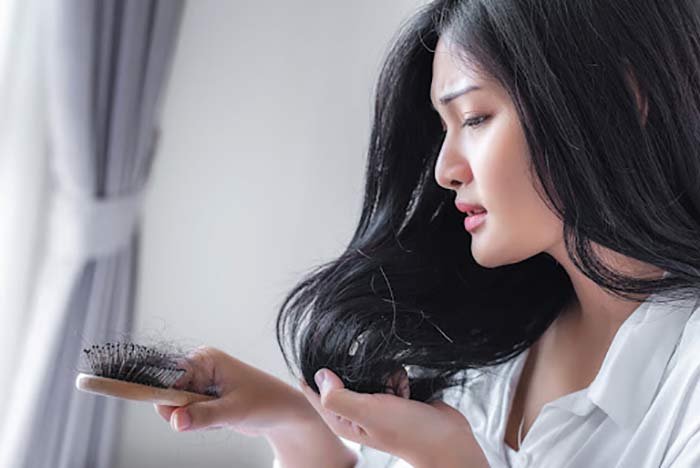
What’s Hair Loss in Women?
Hair loss in women is experiencing unexpected as well as heavy hair fall. Hair loss is termed alopecia in medical studies. There are several symptoms of hair loss, such as sudden loss of hair, losing patches of hair, or noticeable thinning. Losing more than 100 hairs per day is called hair loss.
Genetic hormones, hormonal changes like menopause, menstruation, thyroid issues, etc, physical or emotional stress, aging, pregnancy and childbirth, injuries, pulling hairstyles such as tight braids, cornrows, tight ponytails, etc. Several medications for blood pressure or cancer, chemotherapy or other radiation therapy, and circumstantial effects can cause hair loss in women. You may like if castor oil really helps hair growth or not?
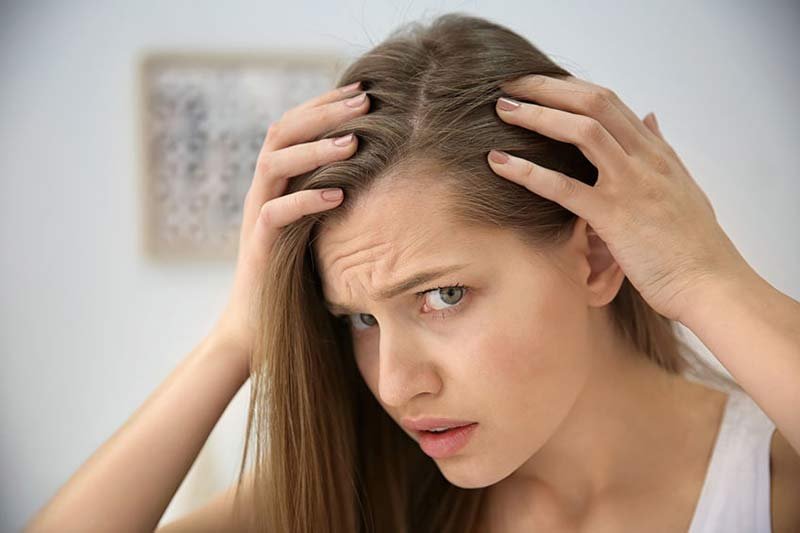
What Are the Types of Hair Loss?
Basically, there are three types of hair loss.
1. Anagen effluvium
This happens as a reaction to medications that poisons the hair follicle, for example, chemotherapy.
2. Telogen effluvium
This is the stage where hair falls out because the hair follicles reach the Telogen phase.
3. Androgenetic alopecia
This is also known as female pattern alopecia or baldness. This is the most known type of hair loss. In this phase hair thins over the top or on the sides of the scalp.
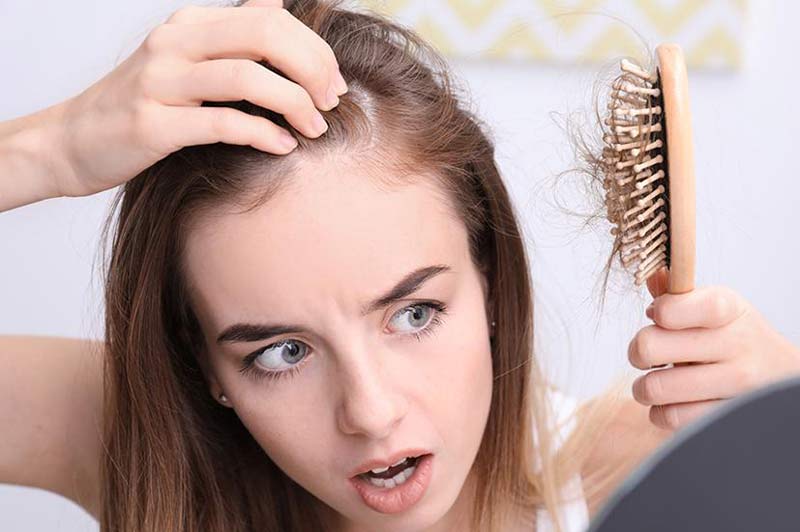
The 09 Causes on Why Does Hair Fall Out
It’s a common question, “why does my hair fall out?” where I am doing everything correctly. But you never know; you already lose the correct things in an incorrect way. Let’s see the 09 basic reasons behind the hair fallout.
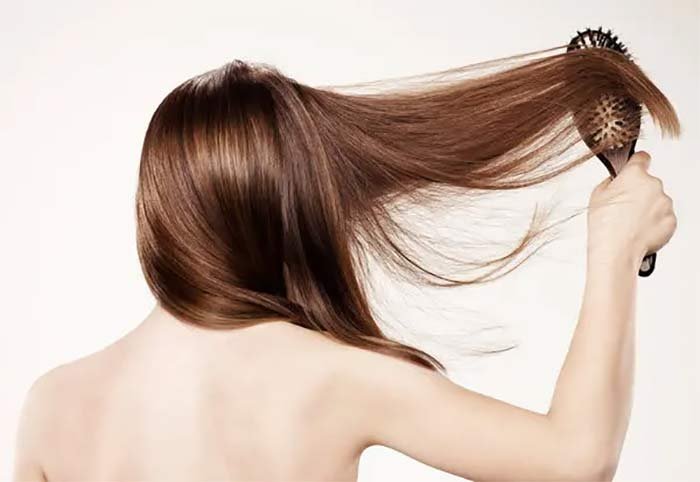
1. Medical issues
If someone is suffering from cancer, anxiety, depression, thyroid, hormonal disorders, or any stressful physical complications, then hair loss is quite evident. Also, medications of high blood pressure and chemotherapy weaken the hair follicle and cause hair loss. You may like our renowned publication: World’s top 10 Makeup Brands.
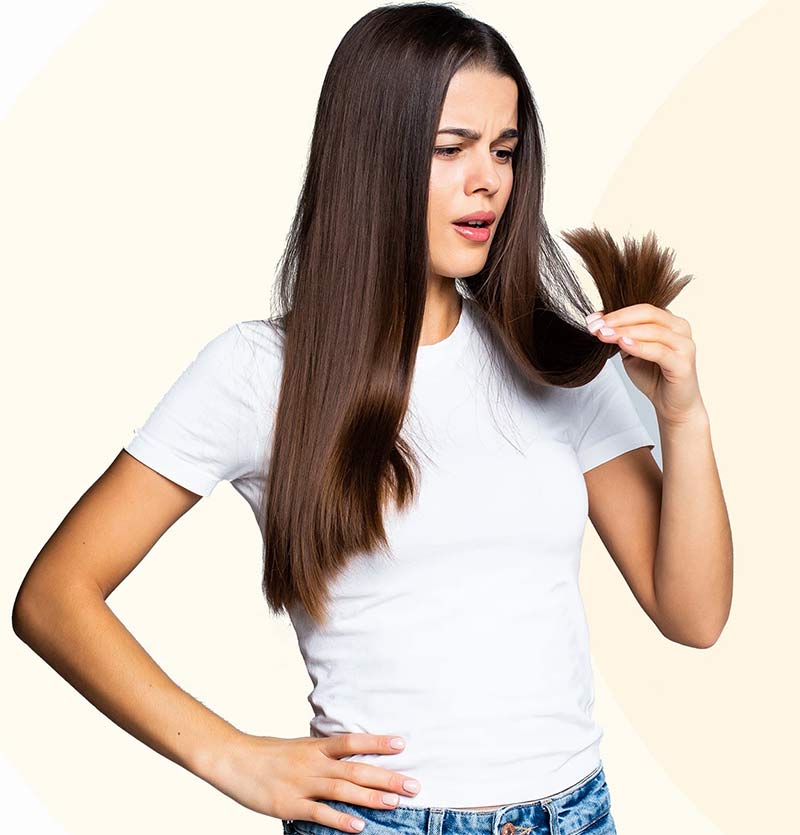
2. Dramatic weight loss
Weight loss may result in nutrient deficiencies, stress, hormonal changes, and other issues. This kind of weight loss may direct one to the Telogen effluvium stage of hair loss which is temporary. It generally occurs within 3 months of dramatic weight loss and lasts about 6 months. Poorly planned or crash diets lead to essential protein, iron, zinc, vitamins, and minerals deficiencies which cause hair loss.
However, a properly planned balanced diet for the optimal functioning of the body and stress management can prevent hair loss.

3. Stress
Both physical and mental stress can be the reason for hair loss. Physical stress shakes the body and causes hair fall. On the other hand, mental stress or emotional breakdown hampers the hair growth cycle. Stress acts as an obstacle to the growth cycle of new hair. Thus hair loss occurs due to physical and mental stress. Let’s see a complete list of makeup products.

4. Medications or supplements
Some medications have possible side effects that can cause hair to fall out. For example, medications for high blood pressure, gut medicines, beta-blockers, cholesterol-lowering drugs, Accutane, warfarin, Zoloft, Prozac, and other medications cause hair fall in many people.
However, if someone feels that some medicines are causing hair loss, then they should stop taking the medicines and ask the doctor who prescribed those medicines or supplements.
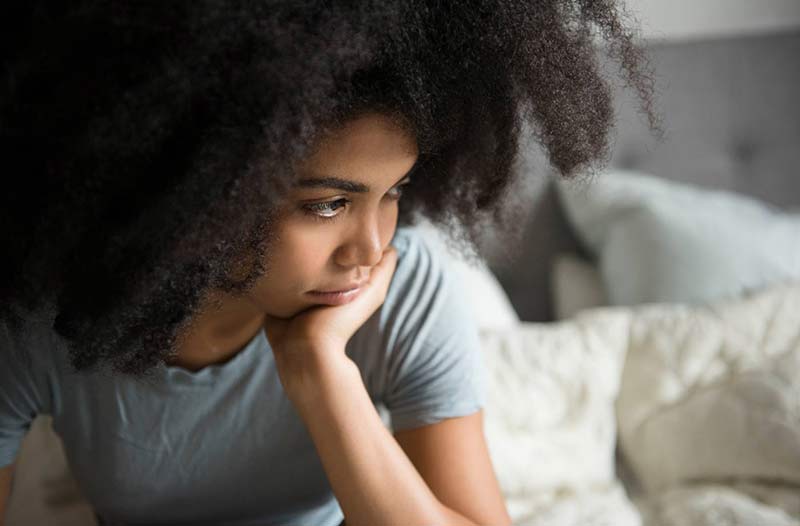
5. Hormonal imbalance or changes
Hormonal imbalances or changes cause losing hair in most cases. Polycystic ovary syndrome or PCOS is the most common cause of hormonal imbalance. It creates a cyst in the ovaries and causes hair loss alongside other symptoms. Also, women who take birth control pills face temporary hormonal imbalances. Again, menopause is another reason for losing hair because it creates hormonal imbalances in women too.

6. Styling practices on hair
Hairstyling sometimes becomes harmful to hair health. If someone wears the hair tightly pulled back very often, then hair loss is seen. Tight braids, tight ponytails, tight buns, and others pull the hair back, and the upfront part of the scalp loses hair. Continual pulling of hair even leads to permanent hair loss and cannot be reversed. This kind of hair loss is termed as traction alopecia.
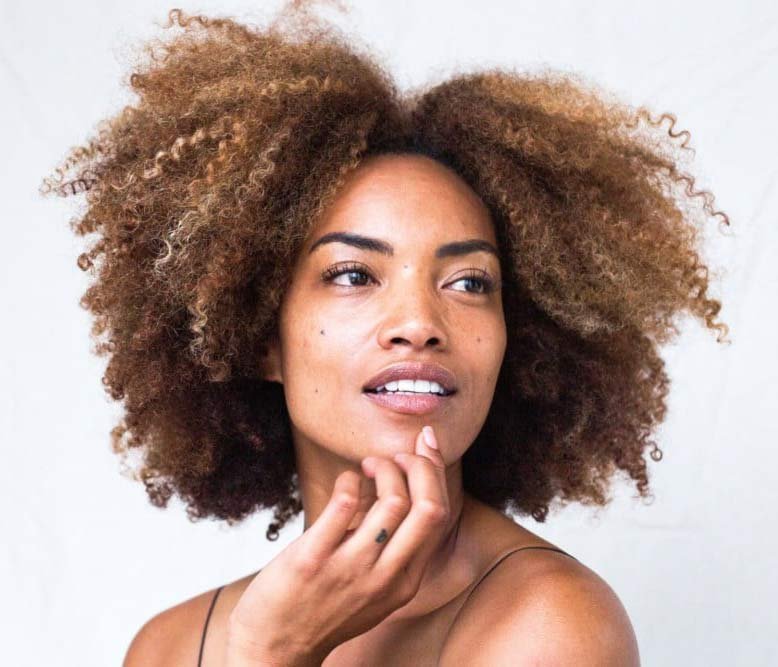
7. Radiation
Radiation therapy in the scalp area gets affected. During this therapy, it is better to shave the hair or to cut the hair short before starting the treatment. However, hair usually grows back after several months once the radiation therapy is fully completed.

8. Hypothyroidism and hyperthyroidism
Hypo and hyperthyroidism both can cause hair loss evidently. Hypothyroidism or underactive thyroid develops slowly and causes weight gain. Hyperthyroidism or overactive thyroid causes weight loss and nervousness. Both of these thyroids disrupted the production of T3 and T4, which develops the hair at its roots.
Also, drugs suggested for treating thyroid contribute to hair loss. One will not notice bald spots or patches instead, overall thinning of hair is seen in thyroids.
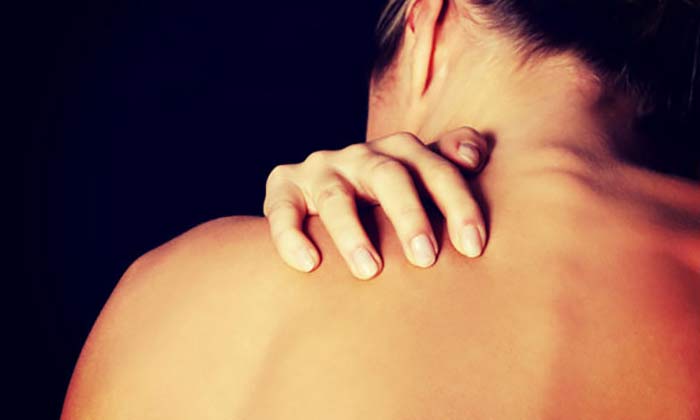
9. Vitamin B12 deficiency
Vitamin B12 is a water-soluble vitamin required for crucial processes in the body. It assists in producing oxygen-rich blood cells that feed the follicles of hair. So the deficiency leads to anemia. The adequate restoration of vitamin B12 can support the hair follicles to grow healthier and thicker. Soya products, meats, eggs, dairy products, tuna, clams, haddock, etc. are the sources of vitamin B12. The RDI for taking vitamin B12 is 2.4 mcg to 2.8 mcg for adults daily.
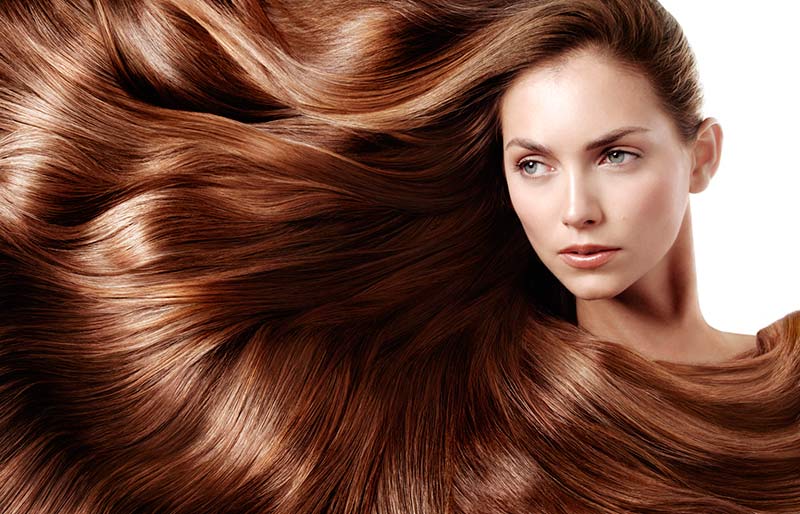
23 Tips of Management and Treatment for Stopping Hair Loss
Hair loss is a very common problem, but there are some treatments and management tips such as a proper diet plan, some supplements, and a perfect hair care routine. If one wants to follow them, she can stop hair from falling out.

# Diet Plan to Stop Hair Fall Out

1. Mediterranean Diet
The Mediterranean diet varies through different countries and regions. But mostly, it consists of vegetables, fruits, nuts, legumes, beans, grains, fishes, unsaturated fats, and herbs. It includes a minimum intake of meat and dairy products. It decreases the risk of Androgenetic alopecia, especially in men. It will develop the scalp and prevent unwanted hair loss.

2. Vitamin A
This is also known as retinol. Vitamin A increases the oily glands named sebum production, which prevents hair breakage. Sebum provides moisture and nourishment to the scalp and supports healthy hair. Vitamin A is needed for cell growth. But too much use of vitamin A can cause hair loss.

3. Protein
Protein is really important for hair strength and growth. Hair follicles are mainly made of protein. Keratin protein is the key protein for hair. Hair is made of about 95% of fibrous protein, which is keratin.
The cuticles of hair absorb keratin and give hair a healthy and glossy look. One needs to add protein-rich foods to the meal daily to prevent hair fall out. Also, protein treatments can be done as egg mask, yogurt mask, or avocado mask to the hair for better results.

# Supplements Need to Take to Prevent Hair Loss

4. Multivitamin
Vitamin deficiencies cause hair loss. In such cases, multivitamins bridge the nutritional gap. So some vitamins and minerals which are helpful for hair health may prevent hair fall: Vitamin B, Vitamin D, Vitamin E, Vitamin C, Selenium, Zinc, and Iron. Multivitamin contains all these in a single dose.
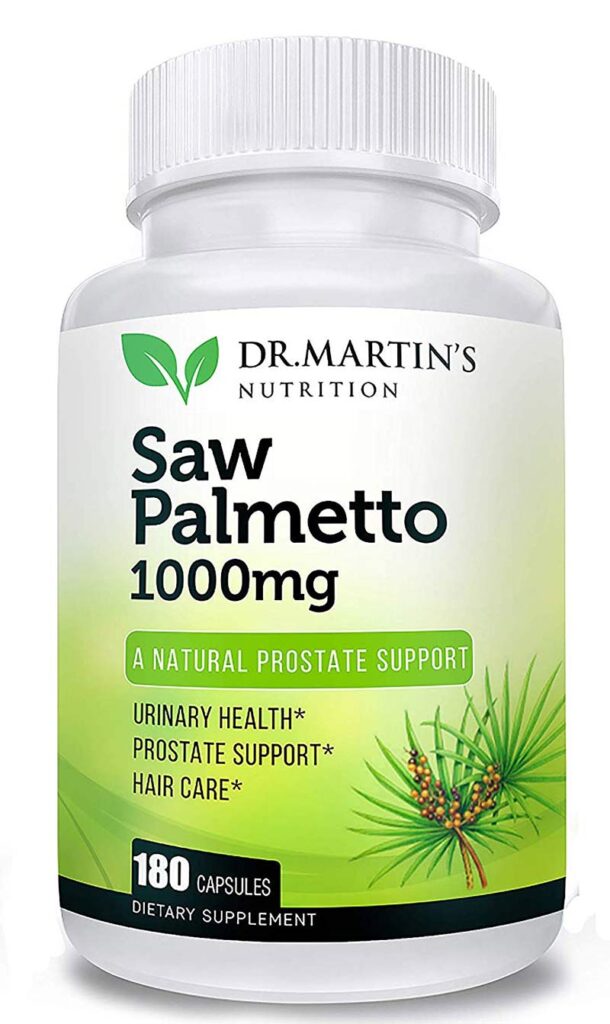
5. Saw palmetto
Saw palmetto is a plant with small berries used both as a medicine and food for years. It is used as an herbal remedy to stop hair loss. It is available in different forms such as whole dried berries, liquid extracts, powdered capsules and tablets. It is recommended to consume 160 mg twice a day. This works best for Androgenetic alopecia.

6. Biotin
It is a water-soluble vitamin. It is a part of vitamin B and vitamin H as well. Biotin contains keratin which is a basic protein for growing new hair. Experts suggested 100 mcg biotin intakes two times per day for 90 days in a row. Organ meats, egg yolk, nuts, whole grains, mushrooms, cauliflower, legumes and others are good sources of biotin.

7. Ginseng
Ginseng is a fleshy plant root. It consists of phytochemicals that promote hair growth by increasing the dermal cells on the scalp. The phytochemicals help in growing new hair on the scalp. It also strengthens hair follicles and hair roots. Along with this ginseng has high saponin, an anti-bacterial element, which fights dandruff from the scalp and cleanses the follicles.
The herbal plants are also known for deep nourishment both in the roots and lengths of the hair. But specific and accurate doses are highly recommended for better results. Meantime, one must take suggestions from experts before taking any pills, supplements or applying ginseng topically.

8. Vitamin D
Vitamin D plays a key role in creating new hair follicles. These tiny pores help to grow new hair. New follicles are important to maintain the thickness of hair. 20 to 50 mg of vitamin D intake is recommended on a daily basis. Egg yolk, salmon, liver, milk, cereal, sardine, cheese etc. are the sources of vitamin D. However, vitamin D deficiency and too much intake of vitamin D both can cause hair loss.

# Hair Care Routine to Stop and Prevent Hair Fall Out
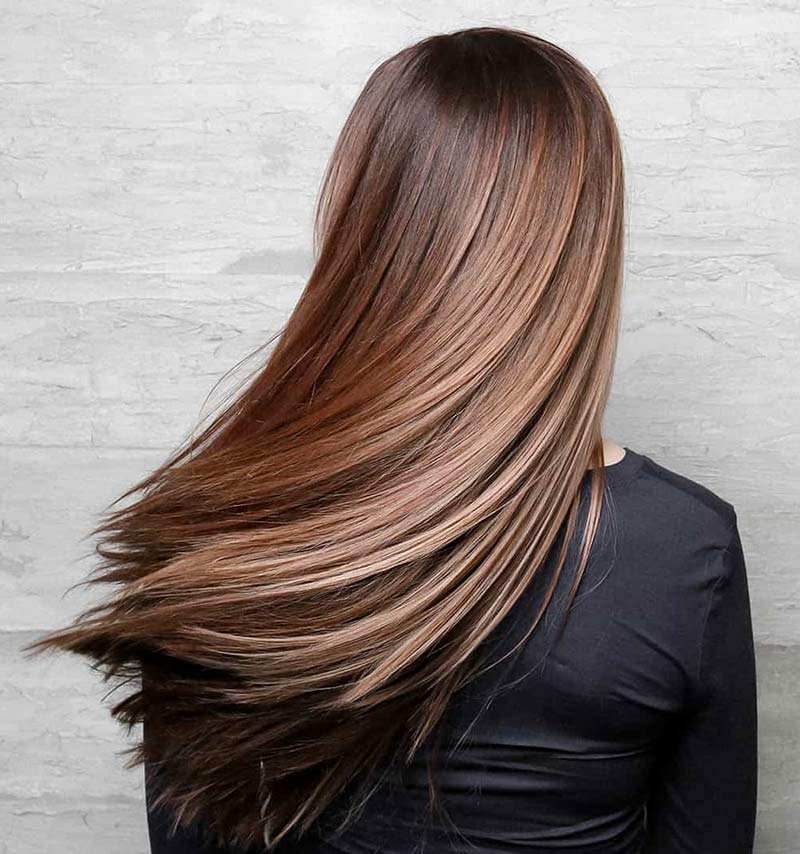
9. Hair processing
Processed hair feels dry, textured, rough and difficult to manage. Chemical treatments like dye, bleach, heat and other styling processes can damage hair. These make hair over-processed. Processed hair becomes difficult to restore its earlier stage as they contain ammonia, peroxide, para-phenylenediamine, etc.
Using moisturizing ingredients such as honey, olive oil, egg, banana, avocado, almond oil, coconut oil, Jamaican oil, etc. is helpful to nourish the hair which leads to stopping hair fall out.

10. Olive oil
Olive oil is best for its moisturizing effect. It is also filled up with vitamin E, fatty acids and minerals. All of these contribute to hair growth. Olive oil does overall wonders for hair health. Olive oil prevents hair loss, makes the hair cuticles smooth and glossy, and helps to grow hair faster as well as longer.

11. Regular washing
Washing the hair on a regular basis is necessary for flourishing a clean and healthy scalp. Using shampoo twice or thrice a week is enough for clean hair. This can lead the hair to stay strong, thick and healthy. Otherwise, too much use of shampoo can or over-wash can dry out the hair.
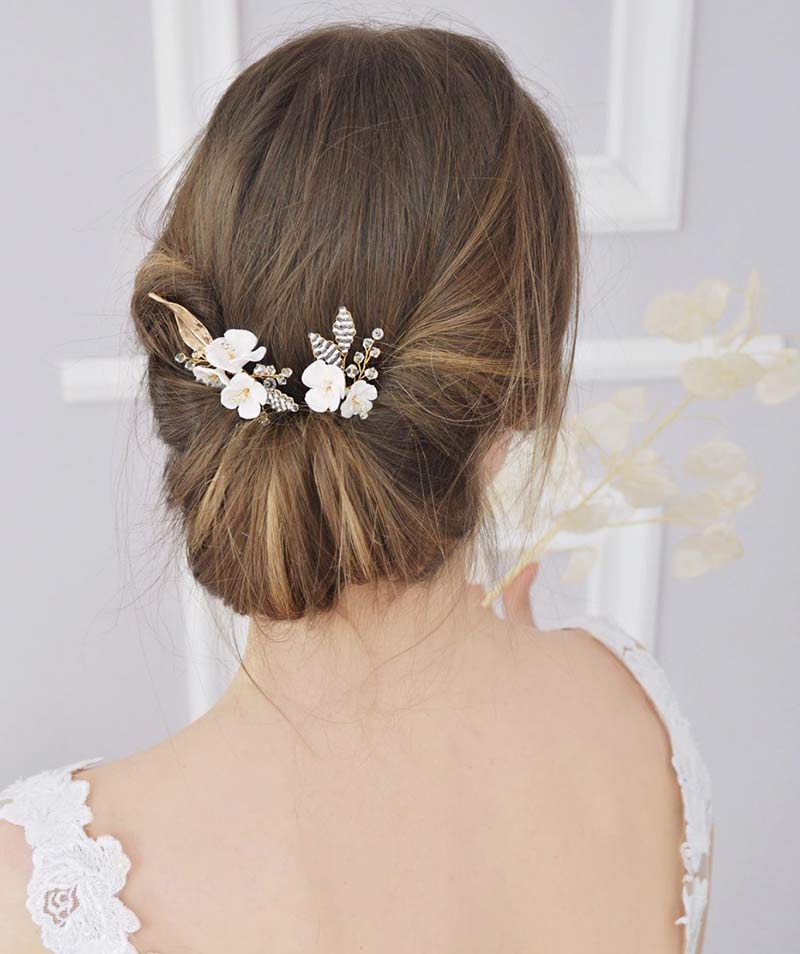
12. Gentle styling
Pulling hairstyles like tight braids, ponytails and others pull the roots and lead to hair shedding. Also heated hair styling machines like hair straightening iron, curling iron or hair drier are harmful to hair health. These lead to hair shafts’ breakage, split ends and other damages. Therefore, one must style the hair naturally without heat and loosely so that there is not much pulling on the hair.
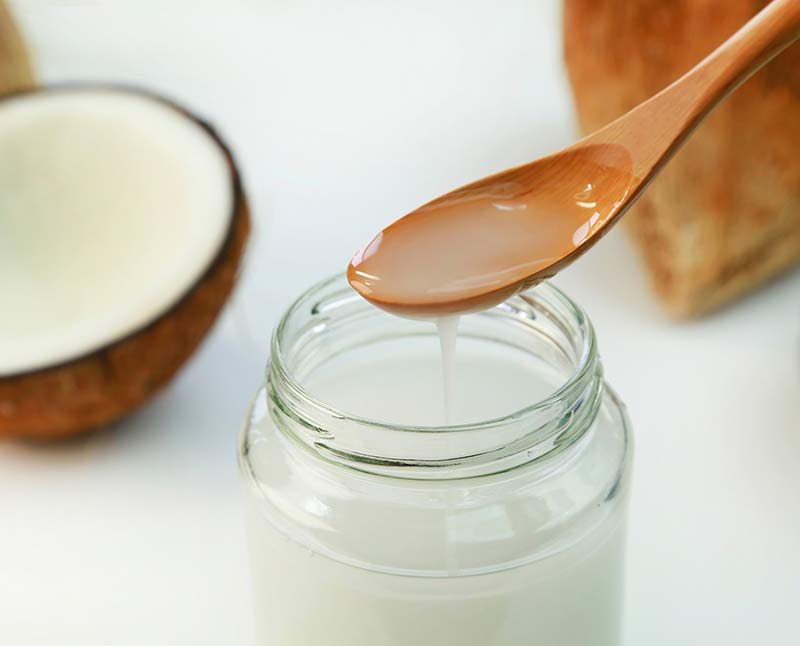
13. Coconut oil
Coconut oil strengthens the hair and moisturizes the hair in the most natural way. It protects the hair from sun damage and ultraviolet light exposure. Laurie acid found in coconut oil helps bind protein in hair. It also protects the hair from breakage. Scalp massage with coconut oil helps the blood flow and hair regrowth that can help to stop hair fall out.
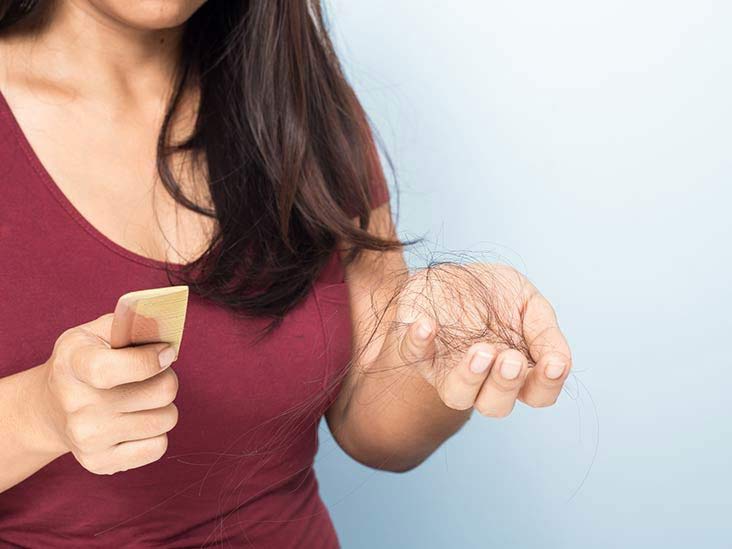
# Medical Treatments to Avoid Hair Fall Out

14. Platelet-rich plasma
Platelet-rich plasma or PRP injecting into the scalp helps in the hair stimulation growth in the areas of hair loss. The research found that 30% growth is seen in the thinning areas after taking four sessions. It is an expensive therapy. Each session costs around 500 to 1000 dollars.

15. Laser therapy
This is also known as red light therapy. It works by stimulating the epidermal stem cells. Low-level lasers are quite helpful to improve hair density and thickness for people who have lost their hair due to chemotherapy or genetic reasons. This therapy is done by laser devices. However, the laser machine costs about 200 to 600 dollars.

# Medications to End Hair Fall Out

16. Finasteride
This medicine is also known as Propecia. This medicine not only prevents hair loss but also it helps in growing new hair in the scalp. This works best for androgenic hair loss for both men and women under 60. This pill slows down hair loss and promotes new hair growth. However, this medicine is not recommended for pregnant women, lactating women and women who want to conceive soon.

17. Phenylephrine
The topical application of phenylephrine helps with hair fall because of pulled and heat styling of hair. It helps by stimulating the hair follicles. But this cannot be used without visiting a doctor.

18. Minoxidil
This is a treatment for hair loss. This is the active ingredient of Rogaine. 2% or 5% rogaine is approved to an extent for the treatment of FPHL. This is also beneficial for people who have lost hair for chemotherapy. It should be applied as the liquid or foam forms on the scalp every day. But one thing that should keep in mind is that minoxidil is not safe for pregnant women or for women who want to get pregnant.
# Other Methods to Stop Hair Fall Out

19. Onion juice
Applying onion juice on the scalp has a positive effect of fighting hair loss, especially for people with alopecia areata. Onion juice on the scalp helps to regrow hair with patchy alopecia in both men and women. Most of the participants have experienced improvements after 6 weeks of religious use. If crude onions are used twice daily, one may see hair regrowth very soon.
Onions have sulfur content which is good for hair growth.

20. Yoga
Hair loss for both physical and mental stress responds well to practicing yoga on a regular basis. Stress-relieving poses of yoga help to relax the mind thus, slowing and stopping hair loss over time. Some effective yoga poses for stress relief are forward bend, fish pose, shoulder stand, camel pose, kneeling pose, downward-facing pose, and so on.
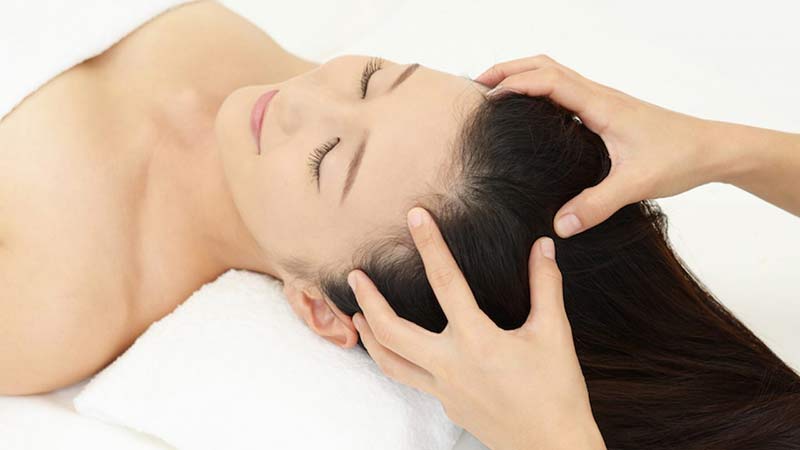
21. Massage
A scalp massage works naturally for preventing hair loss. Scalp massage stimulates hair growth. It helps to regenerate the follicles through circulation. A survey shows people who have 5 minutes of hair massage per day over the course of 24 weeks experience visible results in terms of hair growth. Also, it helps to relax and stay calm which prevents hair loss from mental stress to a great extent.

22. Essential oils
Oils help to protect the nourishment of the hair. It helps most when the hair is damaged by ultraviolet rays or an unhealthy lifestyle. Oils strengthen hair and fight hair fall problems. Research shows essential oils help to reduce hair loss and improve the hair growth cycle.
Essential oils such as lavender, peppermint and others mixed with carrier oils such as jojoba, grasped, etc., are very much effective if massaged on the scalp before washing the hair.
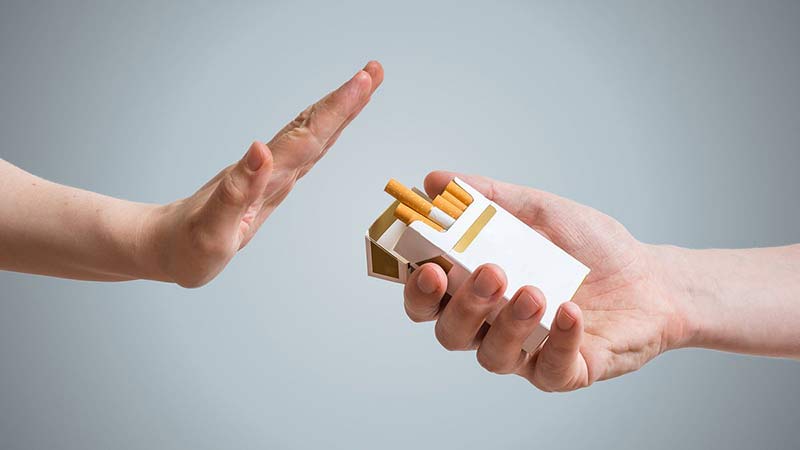
23. Quit smoking
Tobacco damages the hair follicles potentially. Thereby it develops the risk of hair loss. It causes oxidative stress. It also reduces the blood flow of the body and the blood flow to hair follicles as well. Thus smoking contributes to hair loss. Therefore, quitting smoking is very much necessary to prevent hair loss.

06 Proven Ways on How to Prevent Hair Loss
The prevention of hair fall can be done by adopting some simple steps. Just need to know what we can do to prevent our hair loss. As we all know, “prevention is better than cure.” So, this part is the core part of this article.
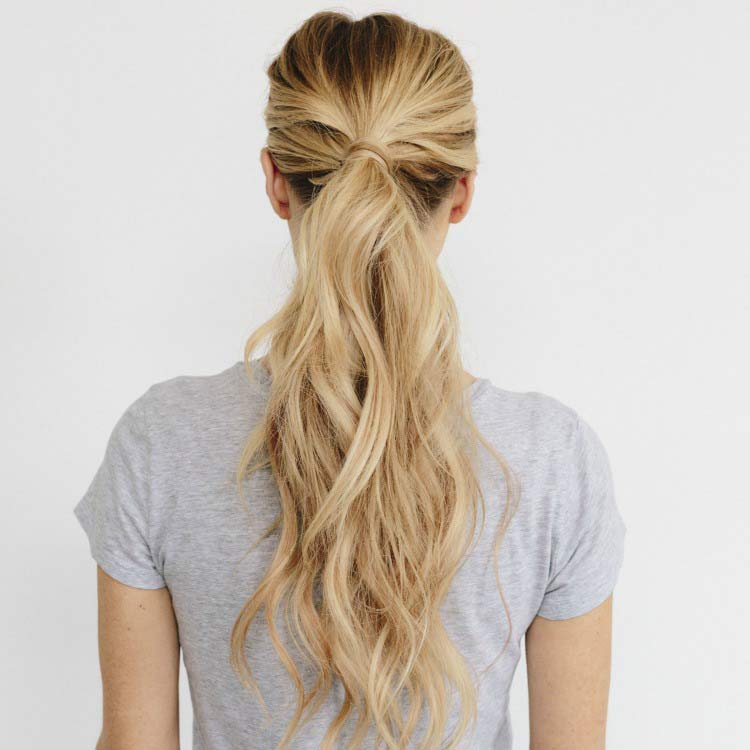
1. Avoid hairstyles that pull on the hair
Pulling and stretching hairstyling can damage hair health. Although hair is flexible, pulling hair is harmful to hair. Stretching hair longer can permanently damage the hair. Several hairstyles such as tight braids, ponytails, cornrows, etc. pull hair away from the scalp. Thus it hampers and loosens hair follicle health over time.
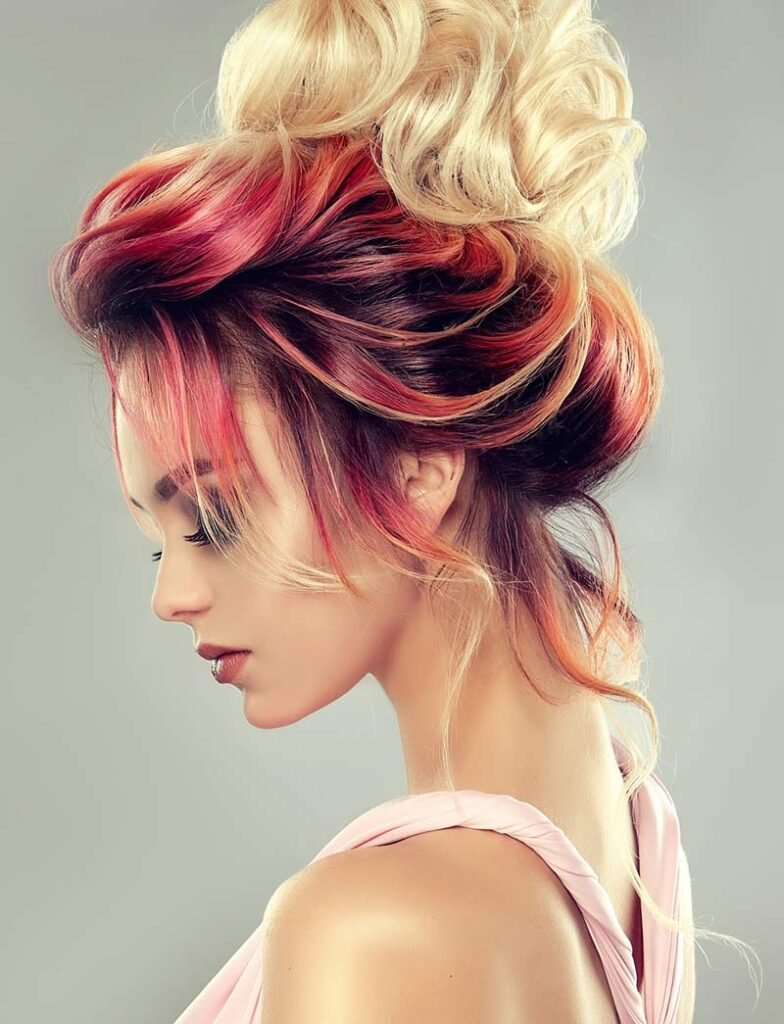
2. Don’t chemically treat or bleach your hair
Chemical treatments and bleaching agents are very harmful to hair. Dyes, perms and peroxide treatments cause irrecoverable damages to the hair follicles. These dyes, highlights, perms, and other treatments cause hair loss mostly.
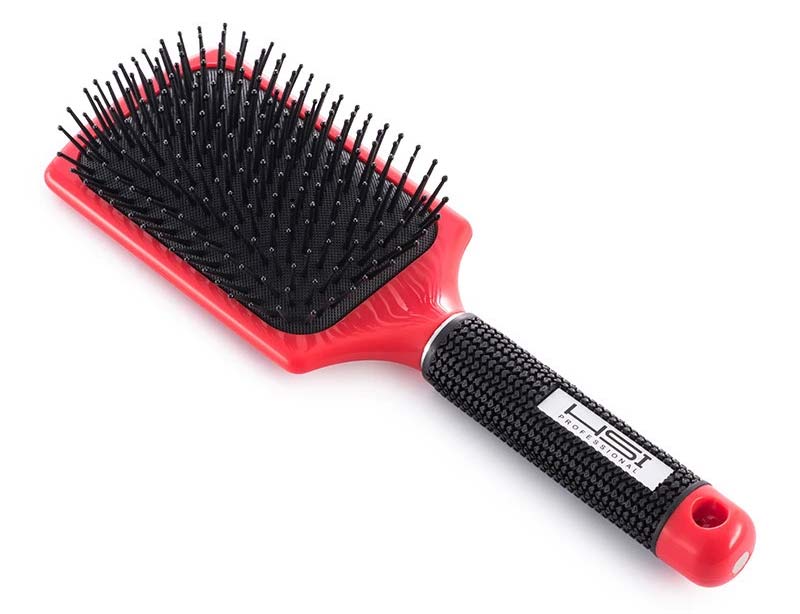
3. Use a soft brush made from natural fibers
Harsh and hard brushes cause harm to the scalp. A soft fiver-made brush promotes a healthy sebum production level of hair naturally. Also, the keratin protein of hair stays on the roof of the scalp so brushing the hair in one direction from top to end helps smooth as well as the condition of the hair cuticle on a molecular level. Brushing daily two times is suggested to avoid hair clumps in the shower drain.
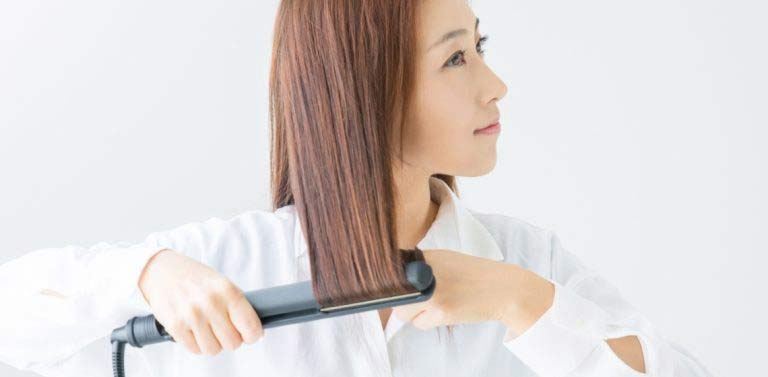
4. Avoid high-heat hair styling tools
High heat styling tools are widely used nowadays to style hair. Hairdryers, hair straighteners, hair irons, and hair curlers can damage hair health over time. Unfortunately, high heat damages the hair follicles by leaving hair dehydrated and damaged. However, there are various heat protectant sprays and serums to protect the hair from damages.

5. Use a shampoo that’s mild and suited for your hair
The shampoo is very important for cleaning the hair. The purpose is to cleanse the dirt, impurities, and excess oil of the hair. The shampoo is of various types. One needs to select the shampoo according to the scalp types like the oily, dry, or normal scalp. However, commercial shampoos mostly contain some harsh chemicals which strip the hair of natural oil, sebum, and fatty acids.
One must read the ingredients before purchasing shampoo and try to pick sulphate-free shampoo with more natural ingredients. Above all, it is suggested to change shampoo from every two to three months. Also one needs to switch up shampoo immediately if one is losing excess hair.
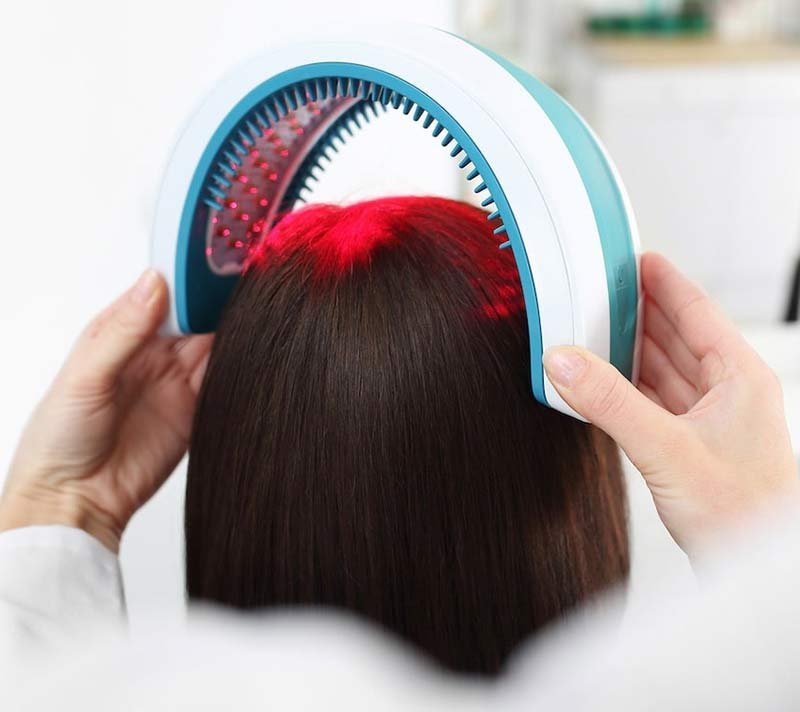
6. Try low-level light therapy
High light and excess exposure to sunlight can slowly damage hair health. It hampers the hair cell, cuticle, and hair growth. It causes split ends. However low-level light therapy repairs damaged hair and enhances hair cell growth. The doctor also prescribed this therapy for hair growth. Even people with alopecia become beneficial in the case of promoting hair growth by low-level light therapy.
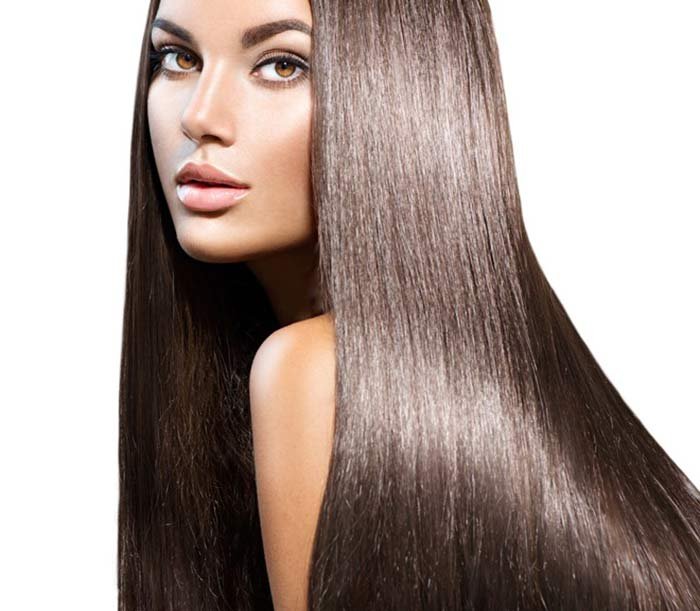
The 03 Cycles of Hair Growth
1. First is the anagen phase. It is known as the growing phase. It normally lasts from two to eight years normally. However, 85% to 90% of the hair on the scalp refers to this stage. Scalp hair can last up to six to eight years. On the other hand, shorter hairs such as eyebrows, eyelashes, and arm and leg hair last nearly one month.
2. The second phase is named as the catagen phase. It refers to the transition period. In this stage hair follicles shrink and take a period of two to three weeks generally.
3. The third and last is the Telogen phase. It is known as the resting phase. The resting phase consists of two to four months. By the end of this phase, hair falls out naturally. In fine, anagen, as well as telogen phase of shedding, may stop over time.
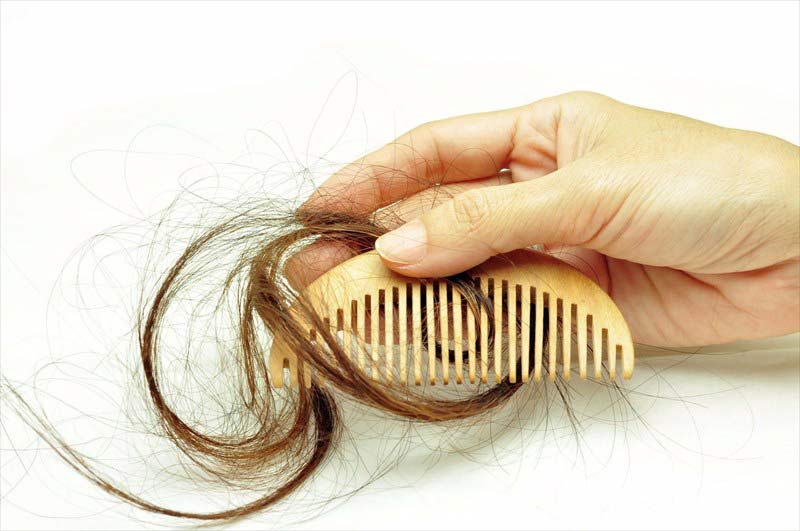
Symptoms and Causes of Hair loss?
Hair loss can be temporary or permanent for any person of any age. There can be many reasons behind it. The reasons differ from man to woman. In the later part, we will know the symptoms and causes of hair loss in detail.
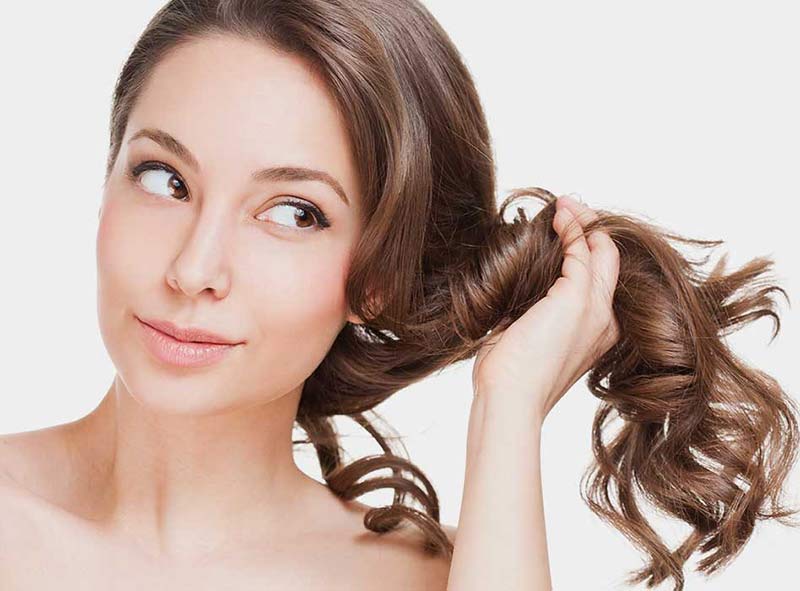
What are the common causes of hair loss in women?
Research says about one-third of women experience hair fall in their lifespan. Most common sign or causes of hair fall in women caused by
- genetic family pattern hair loss,
- thyroid disease,
- androgenic alopecia,
- several hormonal imbalances,
- aging,
- circumstances
- And other health issues.

What causes anagen effluvium hair loss?
Anagen effluvium is responsible for large amounts of hair loss. Hair falls from the head, eyebrows, and eyelashes and from the other parts of the body in this stage. This phase includes radiation, chemotherapy, fungal infections, autoimmune diseases, etc. this can be treated with a topical solution of minoxidil.

What causes Telogen effluvium hair loss?
Telogen effluvium is the phase of hair growth where natural shedding is seen. This phase can be a symptom of stress. Also, it can happen just after or during the pregnancy period due to side effects of any medication. Bald spots, patches, or large clumps of hair fall are the signs of the telogen effluvium hair loss phase. It is a temporary phase and it can resolve with time.
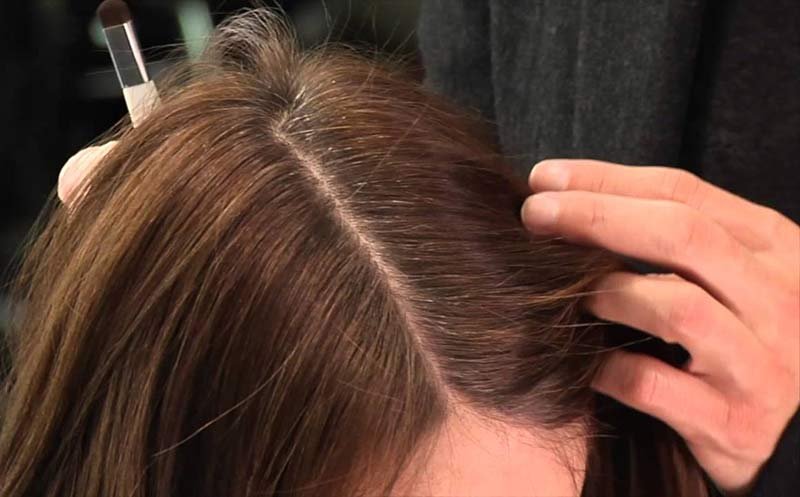
What causes FPHL (Female Pattern Hair Loss)?
This happens for several reasons like genes, aging, menopause, etc. genetic hair loss has extremely affected the generations over the period. Aging causes hormonal changes and causes balding. Then menopause is a period when women undergo various hormonal changes. Estrogen and progesterone are lost in this period and extreme hair loss is visible in such periods.
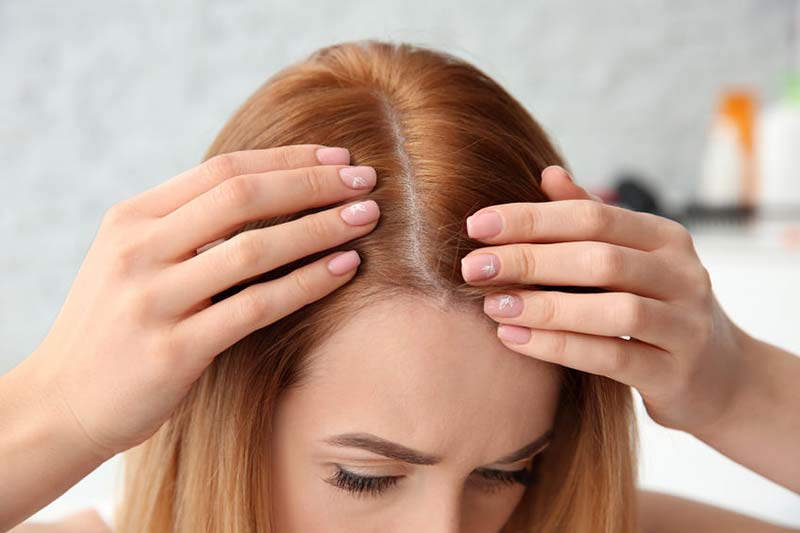
What is the relationship between hair loss in women and menopause?
Menopause brings some hormonal changes in women. Two things usually happen in this phase. Women start either growing hair that they had not seen before or they may start losing hair. The second one is a more common thing to happen.
In this stage, estrogen and progesterone level falls and androgens are increased in the body. Also, hair follicles shrink in this phase where hair grows slowly and falls out rapidly than in normal cases. However, iron levels and thyroid hormone levels should be tested to find out the problem.
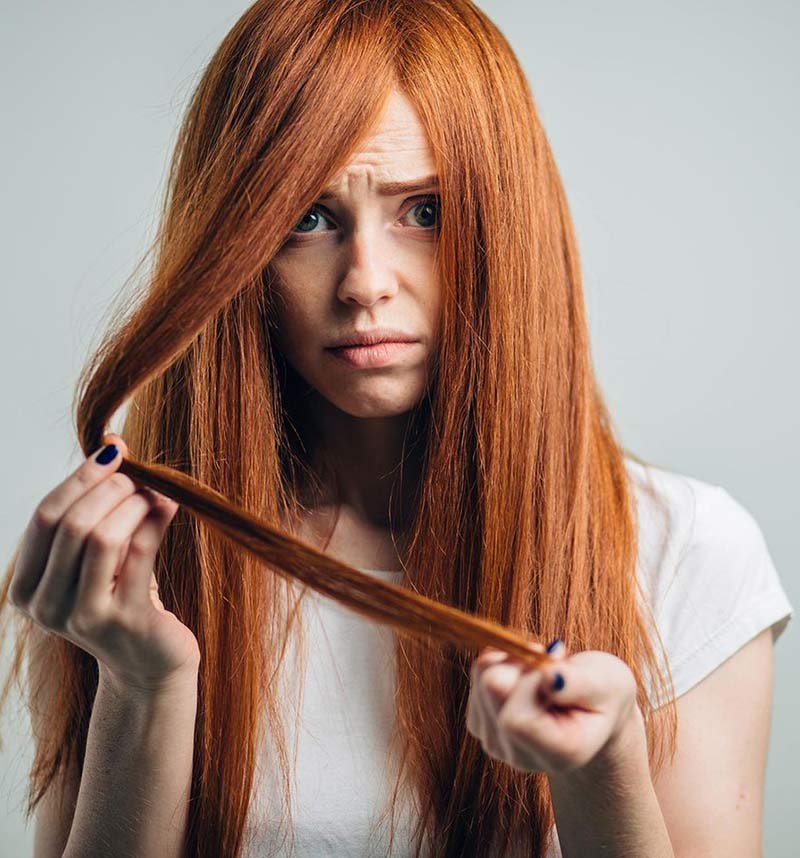
Diagnosis and Tests for Hair Loss:
There are several tests available to diagnose hair loss problems.
1. Hair pulling:
It is the very first and natural way to check how many hairs one is losing. One may see how many hairs are shedding with gentle pulling. If the amount is more than 100 then it is definitely a hair loss problem.
2. Blood test:
Blood tests examine vitamin and mineral levels in the body such as vitamin B, vitamin D, iron, zinc, etc. it also tests hormonal levels for instance thyroid and sex hormones.
3. Scalp examination:
The scalp is being checked by microscope and trichoscopy to see the scalp health in detail.
4. Scalp biopsy:
In this process, a small piece of the scalp skin is removed and then examined for further details.
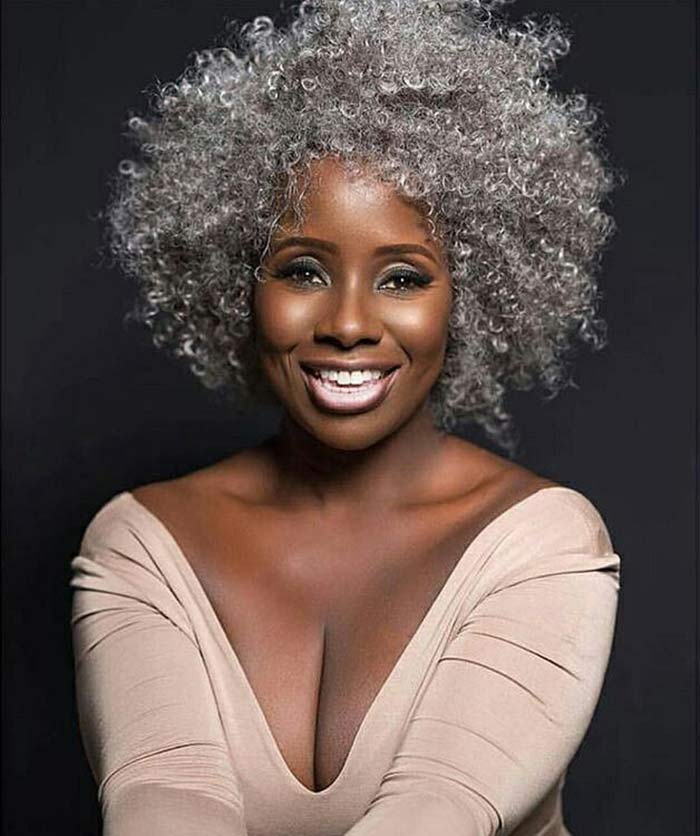
How to Prevent Hair Loss During Chemo
Chemotherapy-related hair loss is normally temporary. It is a side effect of the therapy. Mostly the hair starts growing back within 3 to 6 weeks of finishing the chemotherapy treatment. In such a stage, one needs to completely avoid using any harsh or chemical ingredients on hair like hair bleach, dye, perm, or other heating devices such as curler, iron, straightener, or dryer.
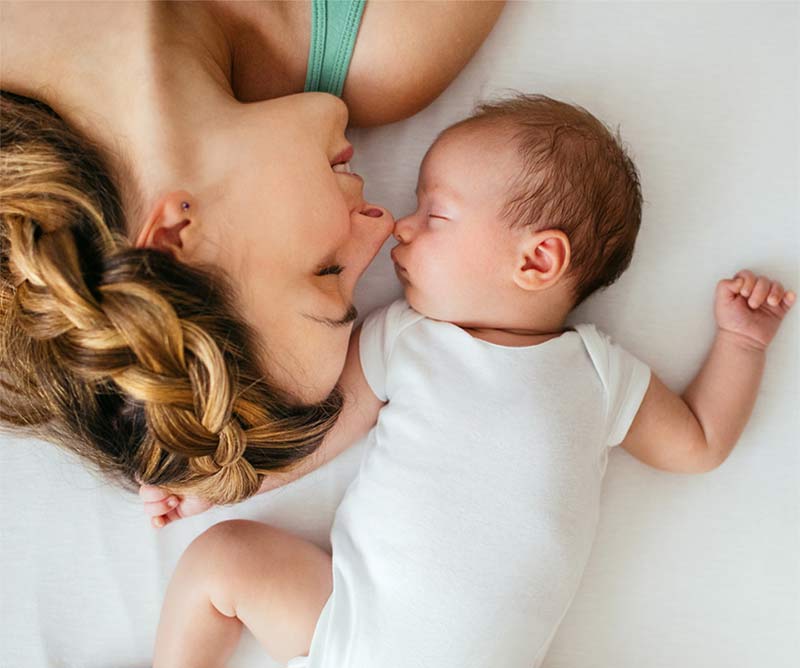
How to Prevent Hair Loss after Pregnancy
Postpartum hair loss is a normal affair. In pregnancy, estrogen becomes the leading hormone and this affects the hair growth cycle. In the postpartum period, estragon level drops suddenly and thus it affects hair growth. In most of the cases, hair loss stops naturally after a certain period of time. There is no treatment needed for this.
To prevent postpartum hair loss, one needs to exercise regularly, to consume a healthy nutrients rich diet and to take vitamins and mineral support adequately.

How to Stop Hormonal Hair Loss
Anti-androgen medications like spironolactone can stop the production of androgen hormone thus preventing hair loss for hormonal changes. Androgen hormones speed up hair loss in women. Hormonal imbalances happen due to menopause, polycystic ovary syndrome, birth control pills, hormone replacement pills, etc.
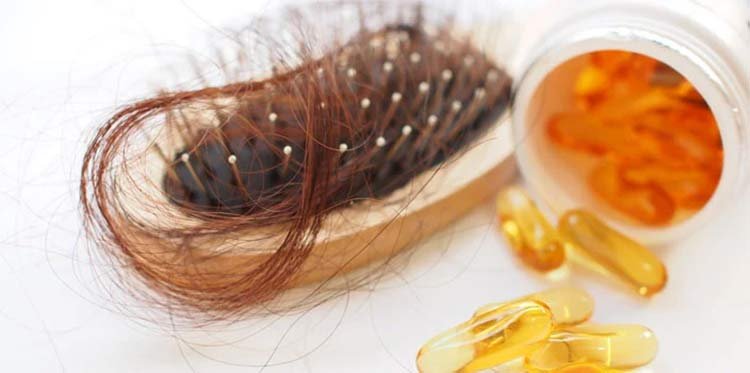
Which Vitamin Deficiency Causes Hair Loss?
Research shows that vitamin D deviancy can trigger hair loss. It stimulates cell growth and creates new follicles. Vitamin D deficiency is linked to alopecia, which means bald spots. 600 IU or 15 mcg doses of vitamin D is suggested per day to maintain hair growth. Sunlight for 15 minutes, cereals, milk, veggies, etc. are the sources of vitamin D.
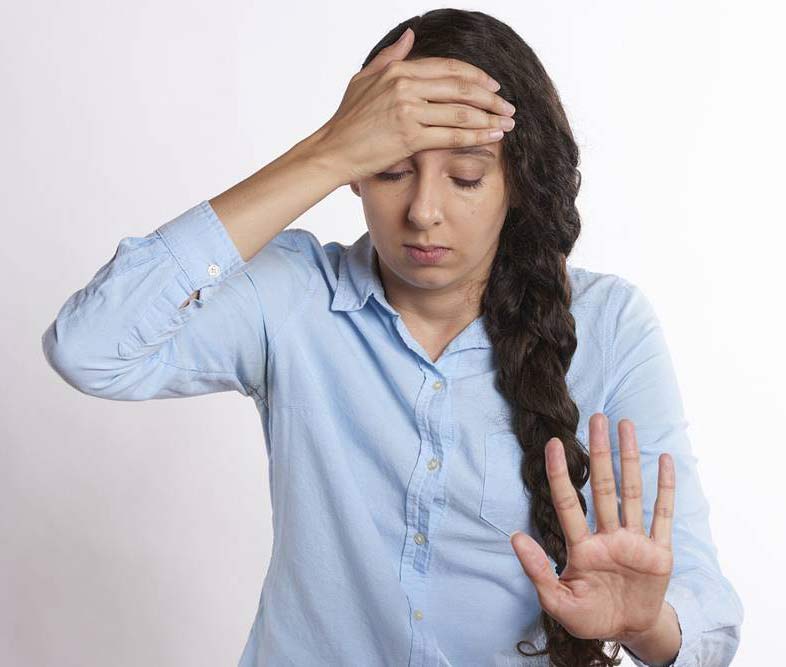
Does Stress Cause Hair Loss?
Stress definitely because hair loss hampers the natural process of the hair growth cycle. High-stress levels are responsible for telogen effluvium, trichotillomania, and alopecia areata hair loss. But it is not permanent. If one can control the stress then hair loss can be controlled too.
Also, there are several ways to control stress like regular exercise, practicing relaxation techniques, proper sleep, religious practices, realistic goals, a positive attitude toward life, etc. can be helpful for managing stress
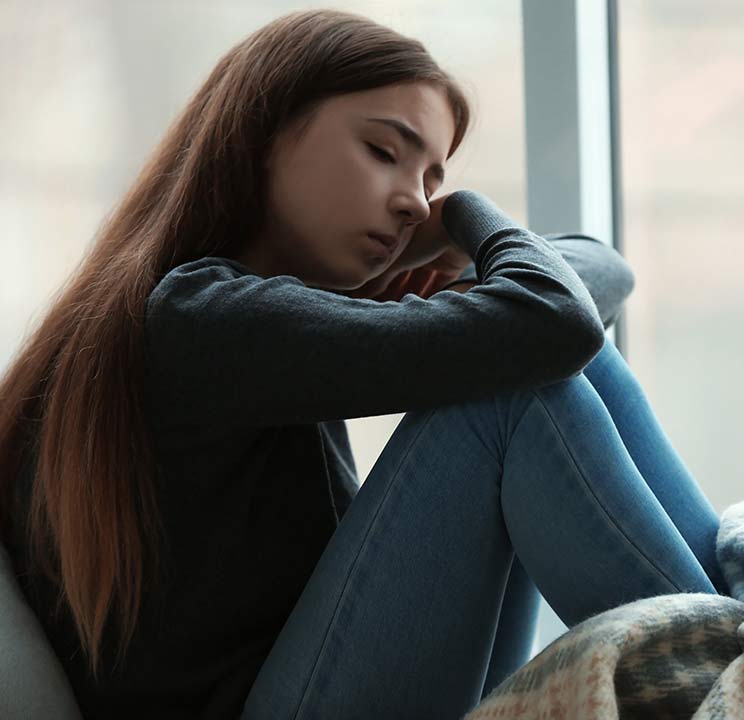
Types of stress-related hair loss
There can be different kinds of stress-related hair loss and they are:

1. Telogen effluvium
It is temporary hair loss caused by physical stress or shock in the body. This phase consists of losing weight rapidly, anemia, illness, surgery, pregnancy period, or giving birth to a child. Also, thyroidal issues and hormonal disorders caused by pregnancy, menstruation, menopause, or birth control pills are responsible.
Next are medications such as for high blood pressure, gout, or high doses of vitamin A intake all give stress in physics and cause hair fall.
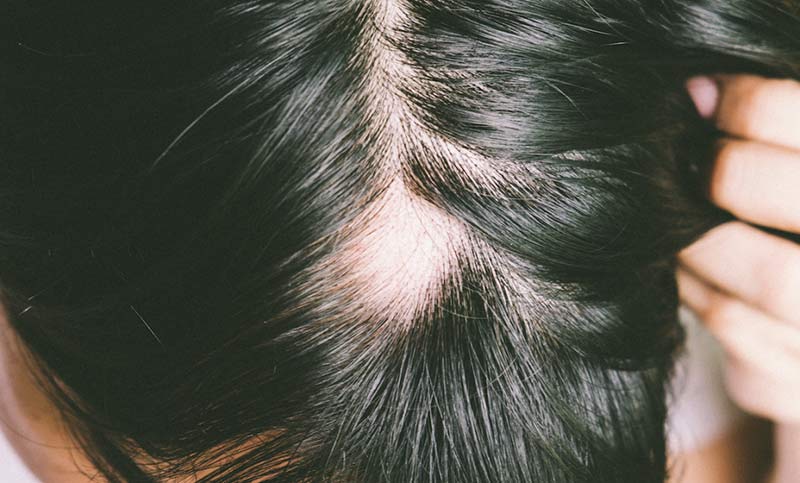
2. Alopecia aerate
This is an autoimmune skin disease. The sign is patchy hair loss on the scalp. It also causes patchy hair loss on the body as well. Several factors are thought to cause alopecia areata. But stress is numbered as the main one. Alopecia areata attacks the immune system thus hair follicle weakens and hair falls.
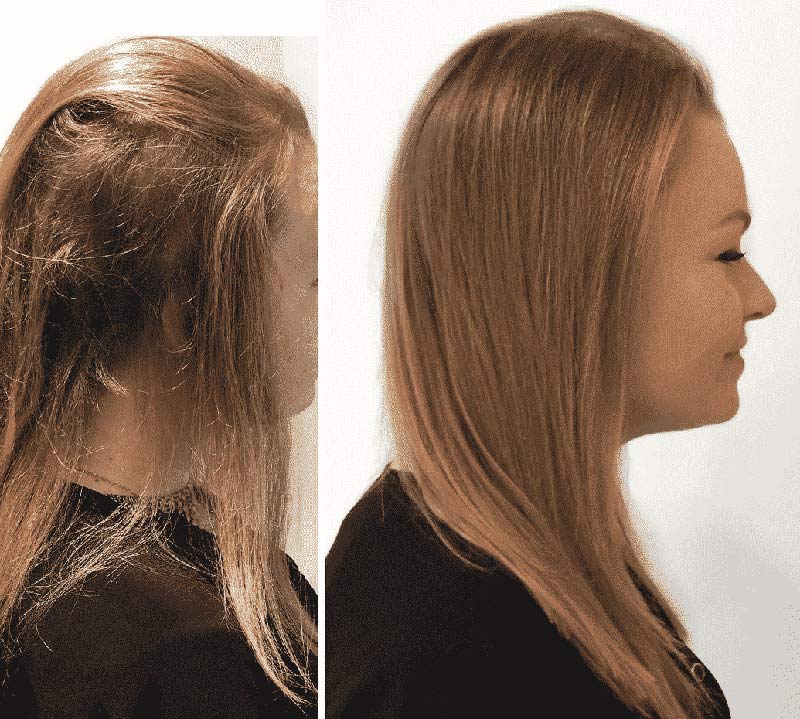
3. Trichotillomania
This is an impulse control disorder that drives individuals to pull out their hair irresistibly. They find it difficult to stop doing this. It results in patchy baldness on the scalp and eyebrows and eyelashes as well. It can lead to permanent hair loss if continued for years. It is a psychological problem.
It can be associated with uncomfortable feelings like stress, tension, loneliness, frustration, anxiety, anger, and so on.
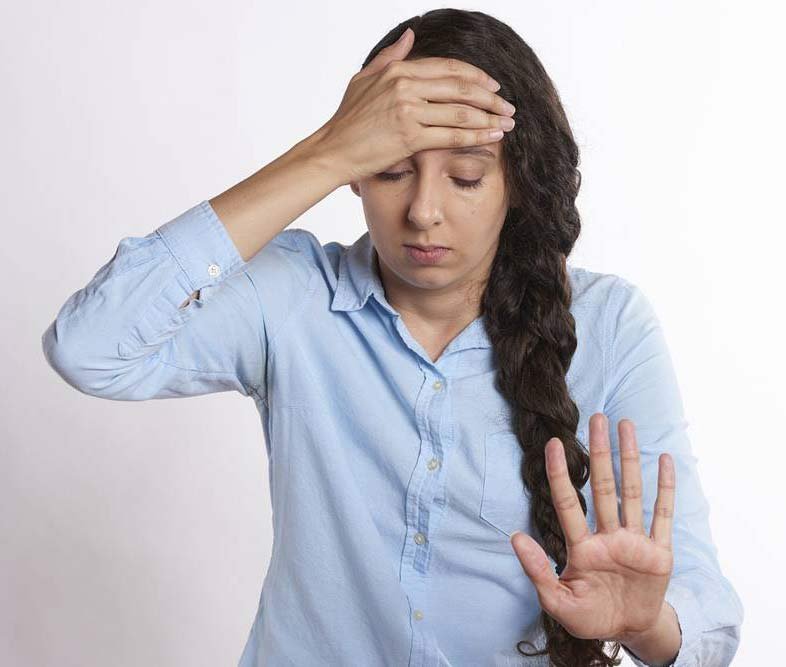
Is stress-related hair loss permanent?
There are several phases and the hair loss is connected with these stages..
1. Anagen phase
A large number of hair follicles are pushed into the resting phase by stress in the anagen phase. Stress restricts the hair from growing to its full length. And the hairs get affected and start falling out within several months.
2. Catagen phase
In the second phase, fully developed hair follicles detach from the scalp and hair falls.
3. Telogen phase
This is the resting phase. Here the follicles are replaced from the old one and new hairs grow. But because of significant stress, the process gets hampered.
4. Exogen phase
The last stage is the exogen stage. During this period old hairs fall out and new ones grow instead of the old ones. But for severe stress, the new hairs do not grow as usual and hair thinning is seen.
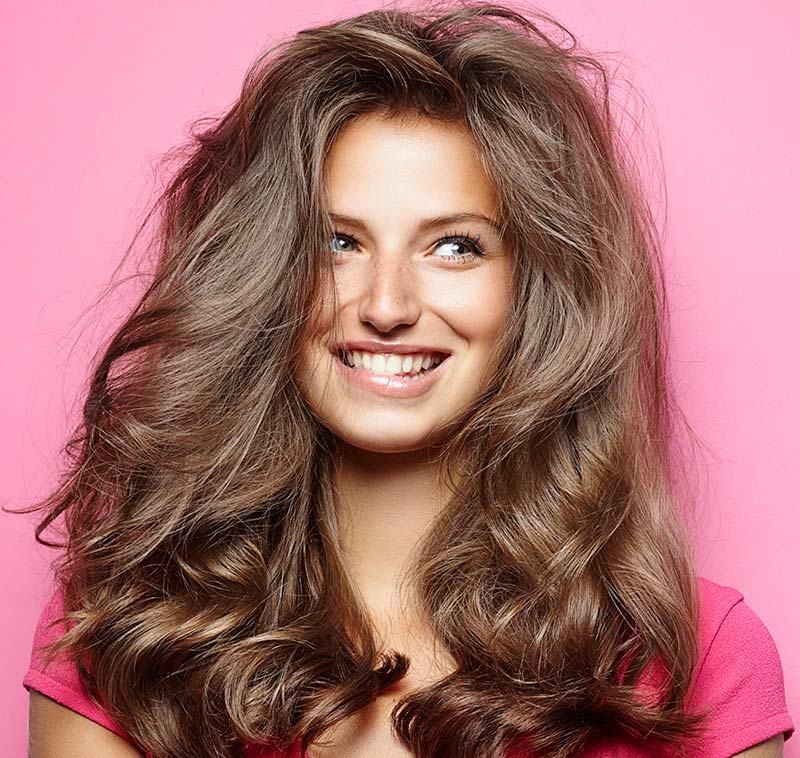
What You Can Do for New Hair Growth?
There are several things that you can do to reduce hair loss and encourage new growth.

1. Diet and nutrition (Vitamin C,B and E)
A proper diet plays a key role in good hair health. A rich antioxidant diet fights oxidative stress, environmental damages to hair. Sugary, processed, preservatives, alcohol, and smoking should be strictly prohibited. Alongside, strawberries, blueberries, beans and legumes, spinach, proteins, milk, and other sources of healthy proteins and antioxidant foods should be taken for good hair.
Nutritional deficiencies primarily cause hair loss. Zinc, iron, vitamin D, vitamin B 12, selenium, vitamin c, E, and biotin are the key vitamins to fight hair fall and to grow baby hair. Iron supplements are highly recommended if hair fall is caused by anemia or heavy menstrual cycles.

2. Stress management
Scalp massage is very effective for stress management. It promotes circulation and promotes hair growth. Yoga also helps to mediate and make the mind and body calm from physical and mental stress. Practicing exercise regularly is very fruitful for relieving stress.
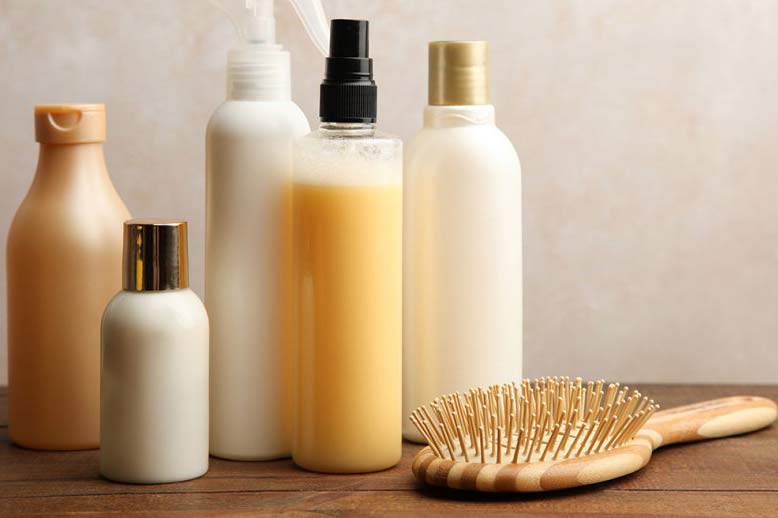
3. Topical creams, oils, and other products
Rogaine, minoxidil is available in ointment, liquid, and spray form are highly effective for baby hair growth. Again anti-androgen medication for example Aldactone, spironolactone, and others are beneficial for androgenic hair loss problems. Also, castor oil, especially black Jamaican castor oil is a very natural effective treatment for preventing hair loss and for growing new hair.
Women experiencing menopause may consider hormone replacement therapy to treat their hair fall issues. Essential oils for instance peppermint, hibiscus, Ginsberg, jatamansi, etc. mixed with carrier oils, such as almond oil, jojoba oil, and others stimulate hair growth.

What if you aren’t Seeing Improvement?
If you have tried to do everything and still can’t see any progress then there can be some reasons.
- illness or recent surgery
- aging
- nutritional deficiency, like a lack of sufficient protein or iron
- genetics
- chemotherapy
- medications, like some blood thinners or antidepressants
- hormonal changes, like childbirth or menopause
# Iron Deficiency, Anemia and Hair Loss
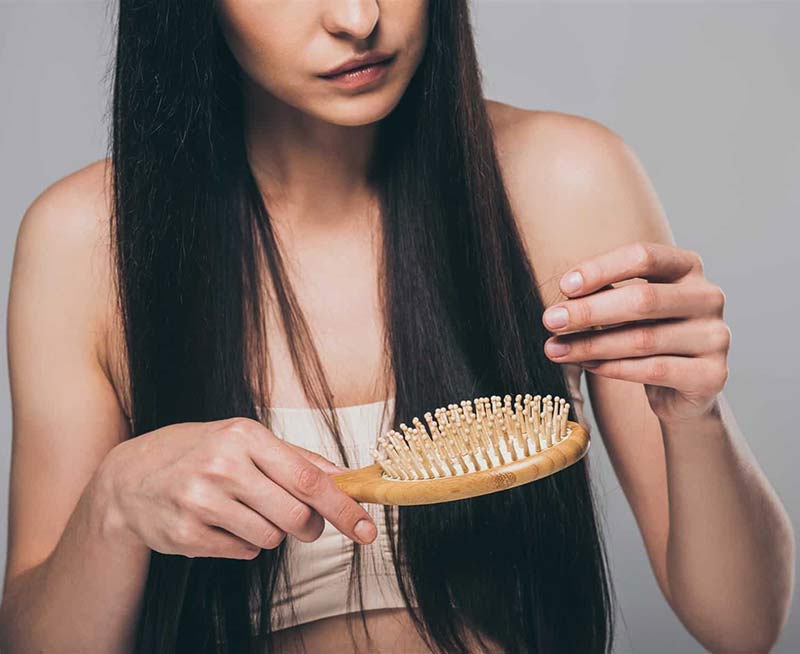
Why does iron deficiency cause hair loss?
Iron deficiency decreases oxygen production in hair from blood. Iron is an essential nutrient for the hair. Iron absorbs in the blood as a ferritin type of protein. Ferritin is found in hair follicles. If one has an iron deficiency that means he has low ferritin which may cause hair loss.
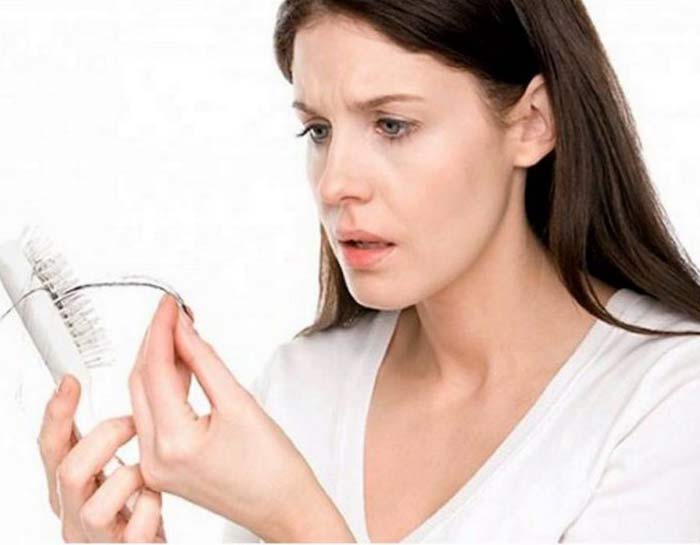
How do you treat iron deficiency and hair loss?
The best way to treat iron deficiency is to increase the iron intake and iron levels in the body. Iron-rich foods, for instance, kidney, liver, beef, spinach, sea fish, etc. are the source of iron. Vitamin C should be taken along with iron as vitamin C helps to get iron absorbed in the body.
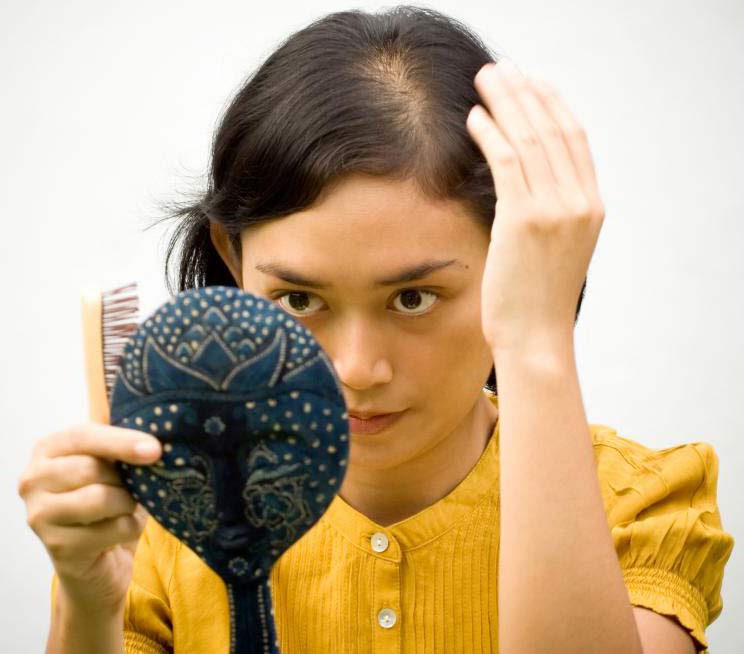
Re-growth with Anemia
Lost hair can be gained after the anemia is treated properly. But it will take several months to show the results along with maintaining a healthy lifestyle, a nutrient-rich diet with vitamins and minerals, and a healthy hair environment. If the hair loss is extreme then minoxidil or rogaine may help them to re-grow faster.
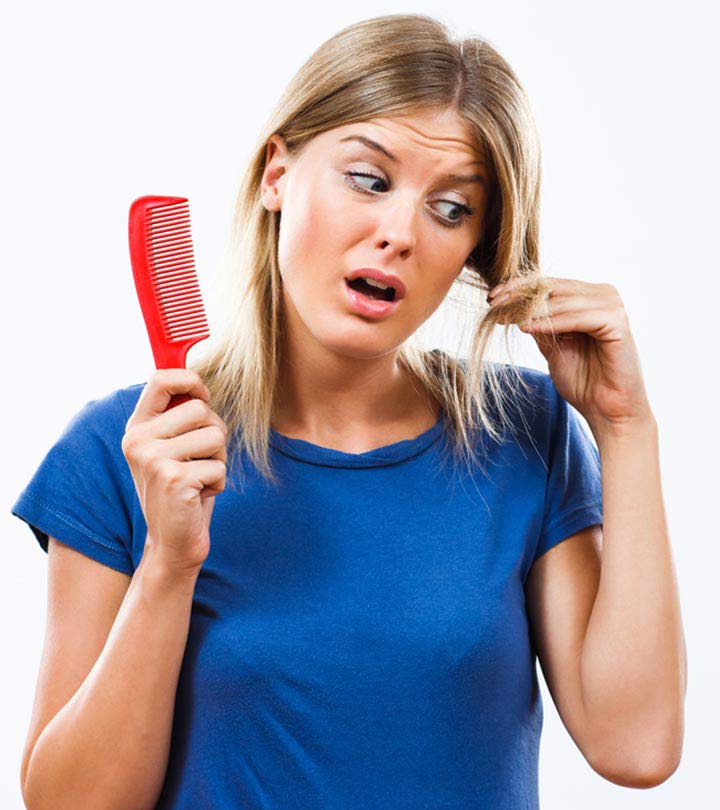
What is the outlook for hair loss caused by iron deficiency?
Hair follicles are made up of protein. Iron has ferritin protein which is stored in hair follicles. Also, hair needs proper blood circulation and oxygen supply to breathe and flourish. Iron deficiency lowers the oxygen flow and production in the blood. For these reasons, iron deficiency can cause hair loss.
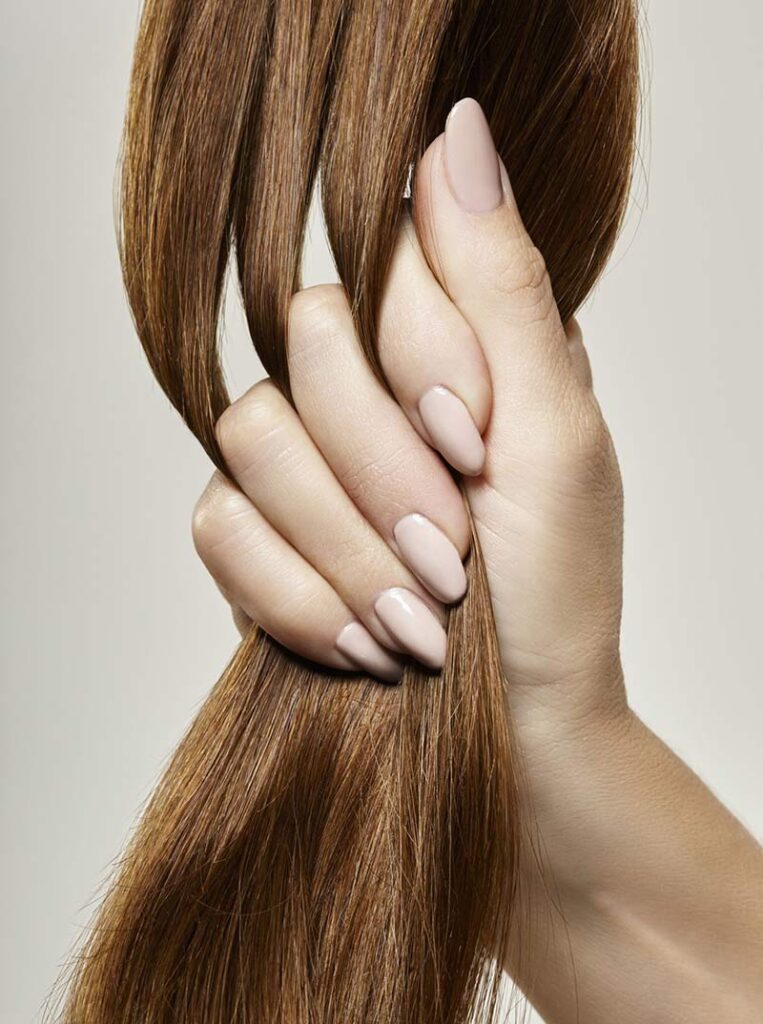
Can you prevent iron deficiency and hair loss?
If the hair loss is related to iron deficiency only then it is possible to get the hair back by new hair growth underlying the deficiency is treated. A study reveals that about 56% of people who lost hair had experienced iron deficiency. However, it takes some months to grow hair back to the earlier stage.
Q/A PART on How to Stop Hair Fall Out

What kind of healthcare provider treats hair loss?
It can be treated by a Dermatology and Venereology Specialist. One should not consult with a general MBBS and medicine specialist doctor because they can mislead you.

How to prevent hair loss in women?
Preventing hair loss is quite impossible when women experience hair fall problems for multiple reasons like genetic, androgenic, situational, hormonal, thyroidal, and other circumstantial conditions.
To prevent hair loss in women to an extent, experts may recommend minoxidil, Aldactone, anti-androgenic medications, oral contraceptives, biotin, multivitamin supplements, HRT, home remedies with castor oil, onion juice and eggs, dietary help, and others. Along with a healthy diet providing necessary vitamins, nutrients, minerals, and proteins might help.
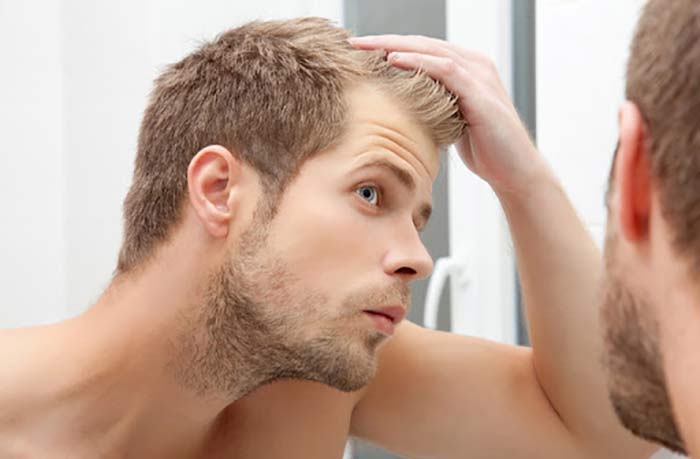
How to prevent hair loss in men?
Hair loss is more common in men than hair loss in women. Some researchers say about 85 percent of men have lost hair by the time they reach their fifties. However, men typically lose hair for genetic male pattern hair loss, androgenic alopecia, low testosterone level, aging, and other circumstantial issues.
Moreover, rogaine, Proscar, Finasteride, hair transplant, follicular unit transplantation, and follicular unit extraction treatments can prevent hair loss and new hair growth.
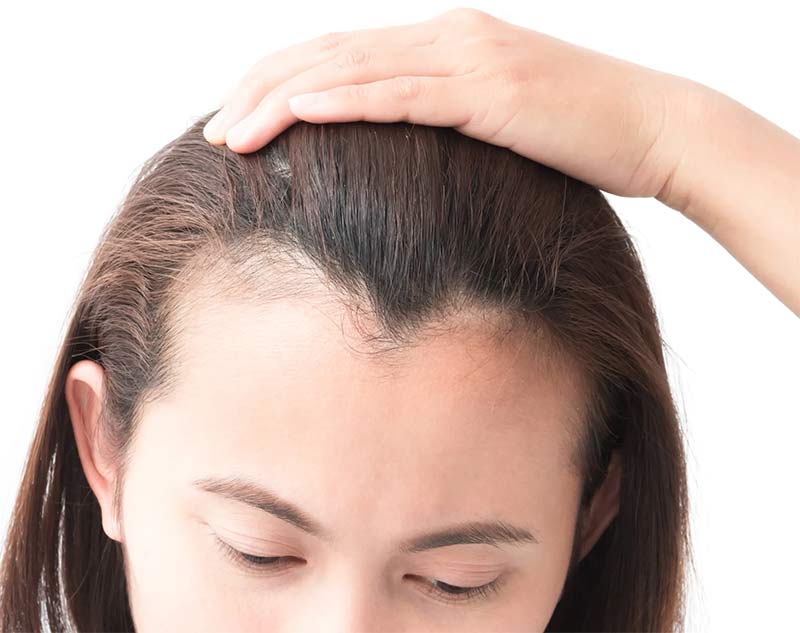
How to stop hair thinning?
To stop hair thinning one must know the exact reason for losing hair. After knowing the reason one needs to take treatments accordingly. However, by maintaining a healthy lifestyle with healthy foods and doing good hair care routinely one may get rid of hair shedding thus hair thinning.
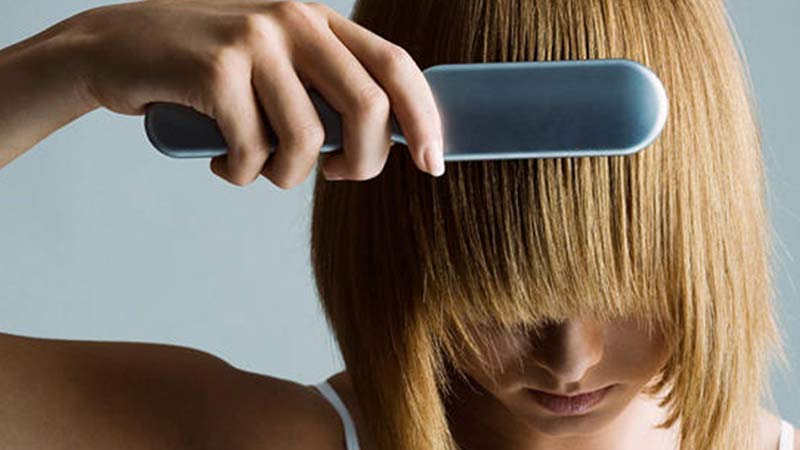
How common is hair loss in women?
An estimated more than 50% of women experience noticeable hair loss in their lifetime. And the most significant reason is female pattern hair loss that affects nearly one-third of susceptible women. However, women in their fifties, pregnant women, women in their forties, menopausal women, and women who use pull-on hairstyles very often face hair loss mostly.
Also, women who have gone under chemotherapy and other strong medication are very likely to lose hair
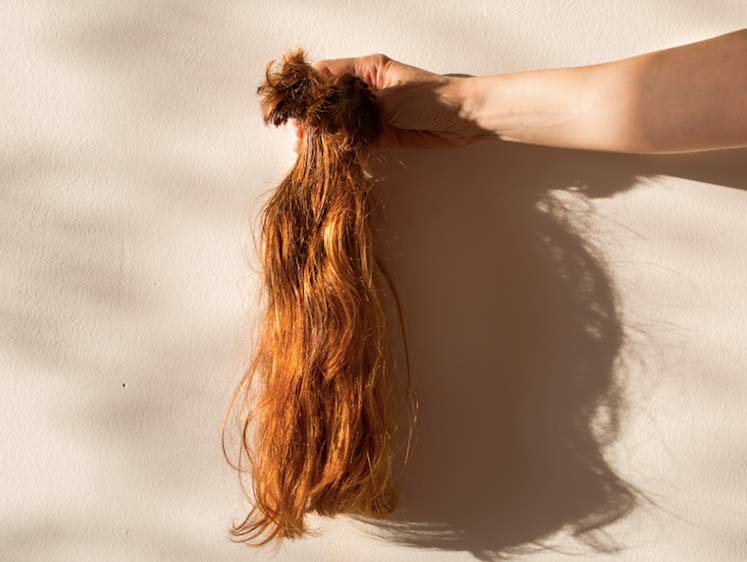
Which women are likely to experience hair loss?
Women can experience hair fall at any age. Some of the types are:
1. Women in their pregnancy or right after the birth of the children
2. Women in their forties
3. Menopausal women
4. Malnutrition and vitamin deficient women
5. Women who take an imbalanced or restrictive diet
6. Women who undergo hair pulling hairstyles very often
7. Women who have had chemotherapy or other medicinal reactions
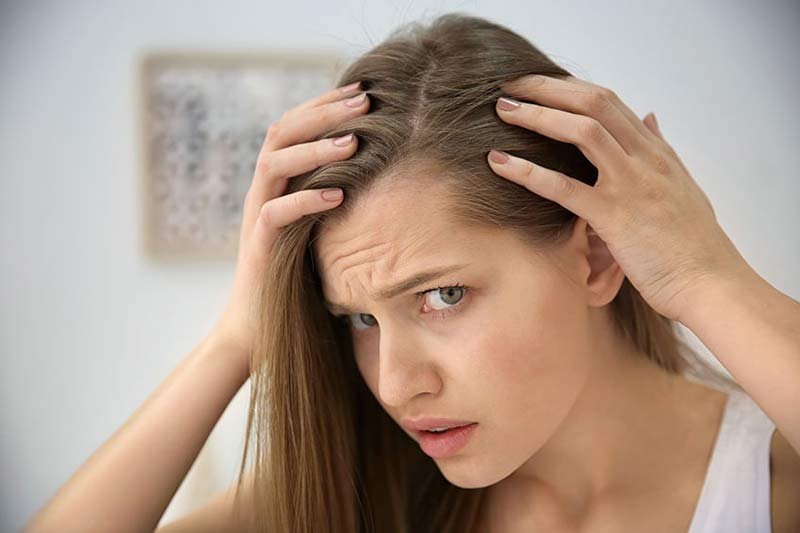
What are the myths about hair loss?
Widespread myths are never true. Some of the myths are following:
1. Using too much shampoo on hair
2. Hair Coloring, bleaching, or perming
3. Stress
4. Dandruff
5. Hats and wigs
6. Intellectual women lose more hair

Hair loss from malnutrition can it reversible
Hair loss from malnutrition is easily reversible by following a proper diet. There are certain vitamins and minerals that are fundamental for maintaining good hair health. For example, iron, zinc, vitamin B, vitamin E, vitamin C, vitamin D, biotin, water, protein, leafy vegetables, selenium, and so on. These are very much necessary for giving hair strength and good health.
One needs to go for a blood test to identify the number of deficiencies and after that one needs to properly divide the nutrients in his food chart.

How to stop hair falling out in clumps
Brushing the hair gently from the top of the hair to the end with a soft fiber hair brush two times can prevent it from falling hair out into clumps. Hair falls out in clumps is the symptom of iron deficiency basically. So raising the iron level may help to stop hair falling in clumps in beds and showers.